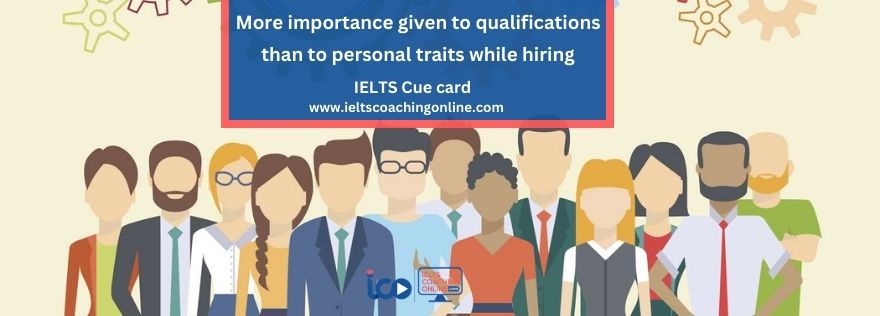YOUNG ADULTS AND UNPAID COMMUNITY WORK

Introduction:
The idea of young adults engaging in unpaid community work has become a topic of discussion. While some argue that this can foster a sense of responsibility and community engagement, others believe it places undue burdens on young individuals who may already be grappling with academic and personal commitments.
Body 1:
Those in favor of young adults participating in unpaid community work argue that it instills a sense of responsibility and civic duty. They contend that such experiences can contribute to personal growth, providing valuable life skills and a deeper understanding of community dynamics.
Body 2:
However, opponents of this idea assert that young adults are already burdened with academic pressures and personal responsibilities. Mandating unpaid community work, they argue, may lead to burnout, impacting academic performance and mental well-being.
Conclusion:
To conclude, the notion of young adults undertaking unpaid community work has its merits and demerits. Striking a balance between encouraging community engagement and recognizing the challenges young individuals face is crucial to ensure a positive and manageable experience.
Introduction:
The concept of young adults participating in unpaid community work has sparked debates regarding its potential benefits and drawbacks. While some argue that it fosters a sense of civic duty and personal growth, others express concerns about the additional burden it places on young individuals.
Body 1:
Proponents of unpaid community work for young adults believe that it instills a sense of responsibility and community engagement. They argue that such experiences contribute to personal development, imparting valuable life skills and fostering a stronger connection to the community.
Body 2:
On the contrary, critics assert that young adults already face substantial pressures, balancing academic commitments and personal responsibilities. Mandatory unpaid community work, they argue, could lead to burnout, negatively impacting academic performance and overall well-being.
Conclusion:
In conclusion, the question of whether young adults should engage in unpaid community work is complex. Striking a balance between encouraging community involvement and acknowledging the challenges young individuals face is essential for a well-rounded and positive approach.
Introduction:
The discussion around young adults participating in unpaid community work raises questions about t he potential benefits and drawbacks of such engagements. Advocates argue that it builds a sense of responsibility, while opponents express concerns about the added pressure on young individuals.
Body 1:
Supporters of unpaid community work for young adults posit that it cultivates a sense of civic duty and personal growth. They contend that such experiences provide practical life skills, enhance social awareness, and foster a stronger sense of community belonging.
Body 2:
Conversely, critics argue that young adults already face considerable challenges, managing academic demands and personal obligations. Imposing mandatory unpaid community work may exacerbate these pressures, potentially leading to burnout and adversely affecting academic performance.
Conclusion:
In conclusion, the issue of young adults participating in unpaid community work involves a delicate balance between fostering civic responsibility and recognizing the challenges faced by this demographic. A thoughtful approach that considers the potential benefits and drawbacks is necessary to ensure a positive and manageable experience.
Introduction:
The topic of young adults engaging in unpaid community work is multifaceted, with arguments both in favor and against. Advocates highlight the positive impact on personal growth and community engagement, while opponents express concerns about the potential strain on young individuals who are already managing various responsibilities.
Body 1:
Supporters of unpaid community work for young adults emphasize its role in fostering a sense of responsibility and community engagement. They contend that these experiences contribute to personal development, providing practical skills and a heightened awareness of social issues.
Body 2:
However, critics argue that young adults often face significant academic and personal pressures. Introducing mandatory unpaid community work may add to these burdens, potentially leading to burnout and negatively affecting academic performance.
Conclusion:
In conclusion, the question of whether young adults should participate in unpaid community work requires a nuanced consideration of the potential benefits and challenges involved. Striking a balance that encourages community engagement while recognizing the existing pressures is crucial for a positive and sustainable experience.
Introduction:
The discourse on young adults engaging in unpaid community work delves into the complexities of balancing personal development with existing responsibilities. While proponents argue that such experiences foster a sense of civic duty and personal growth, opponents express concerns about the potential strain on young individuals managing academic and personal commitments.
Body 1:
Advocates for unpaid community work contend that it plays a crucial role in cultivating a sense of responsibility and community engagement among young adults. These experiences, they argue, contribute to personal growth, providing practical life skills and a deeper understanding of societal challenges.
Body 2:
In contrast, critics argue that young adults often grapple with substantial academic and personal pressures. Introducing mandatory unpaid community work may exacerbate these challenges, potentially leading to burnout and negatively impacting academic performance.
Conclusion:
To recapitulate, the issue of young adults participating in unpaid community work requires a balanced perspective. While recognizing the potential benefits of fostering civic responsibility, it is essential to consider the existing pressures on this demographic to ensure a positive and manageable experience.
Introduction:
The question of whether young adults should engage in unpaid community work has sparked a nuanced debate, considering the potential benefits of personal growth and community engagement against the concerns about additional pressure on individuals already managing various responsibilities.
Body 1:
Proponents of unpaid community work argue that it instills a sense of responsibility and fosters community engagement among young adults. These experiences, they contend, contribute significantly to personal growth, providing practical life skills and a heightened awareness of societal issues.
Body 2:
On the other hand, critics express reservations, pointing out that young adults often juggle demanding academic schedules and personal commitments. Imposing mandatory unpaid community work may intensify these pressures, potentially leading to burnout and adversely affecting academic performance.
Conclusion:
In conclusion, the discussion around young adults participating in unpaid community work requires a thoughtful approach. Recognizing the potential benefits of fostering civic responsibility while addressing concerns about additional pressures is crucial for creating a positive and sustainable experience.
Introduction:
The issue of young adults participating in unpaid community work raises important considerations about personal development, community engagement, and the potential strain on individuals managing multiple responsibilities. While advocates highlight the positive impact on responsibility and personal growth, critics express reservations about the potential burden on young individuals.
Body 1:
Supporters of unpaid community work argue that it plays a pivotal role in fostering a sense of responsibility and community engagement among young adults. These experiences, they assert, contribute significantly to personal growth, providing practical life skills and a heightened awareness of societal challenges.
Body 2:
However, critics emphasize the challenges faced by young adults, including demanding academic schedules and personal commitments. Introducing mandatory unpaid community work may intensify these pressures, potentially leading to burnout and negatively impacting academic performance.
Conclusion:
To reiterate, the question of young adults engaging in unpaid community work requires a balanced and nuanced perspective. Acknowledging the potential benefits of fostering civic responsibility while addressing concerns about additional pressures is essential for creating a positive and sustainable experience.






Great, thanks for sharing this blog. Fantastic.